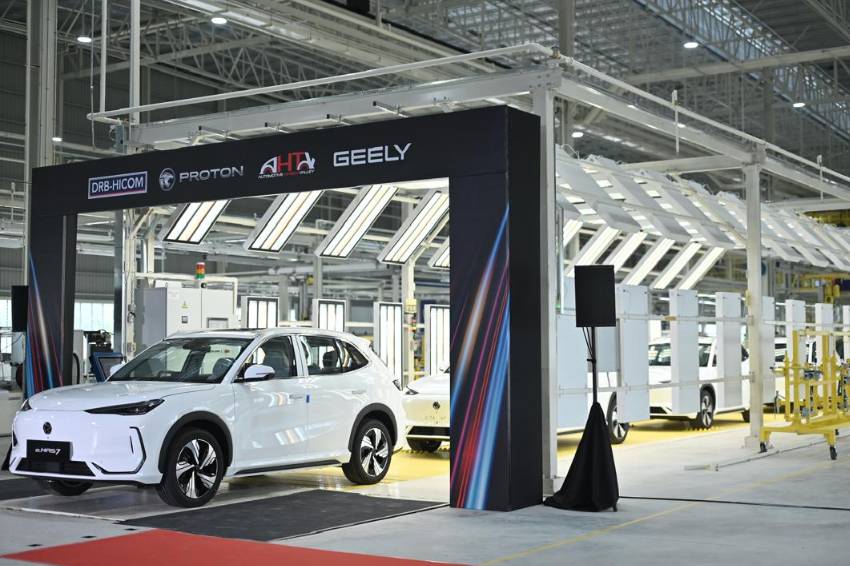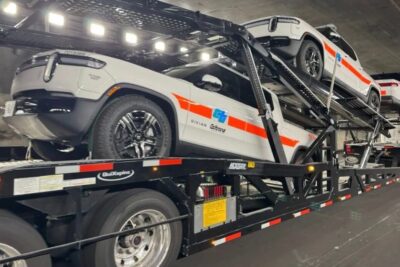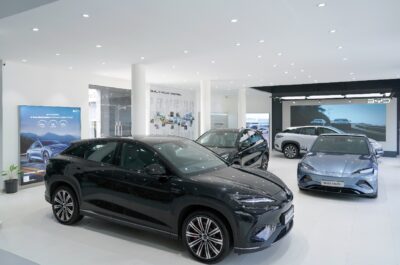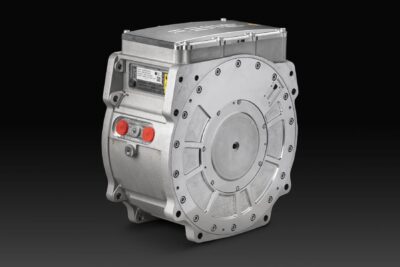Proton kicks off EV production in Malaysia
The plant, situated in western Perak state—Malaysia’s main automotive hub—will initially produce 20,000 cars annually, but this could be scaled up to 45,000 units per year, Proton said in a statement.
Spanning 5.57 acres, the assembly line has now been completed, at a cost of around RM47 million (approx. €9.5 million) for the first construction phase. Several key production lines are already operational, “including the tyre manipulator chassis line, rear sub-assembly line, rear spring compress machine and pallet sub-assembly line.” Proton added that the “final stages of production are handled by the final line conveyor, which works in conjunction with the chassis line.”
During the launch ramp-up, Proton hired 30 staff to oversee “critical operational and technical roles.” The plant is expected to employ more than 200 people once operations are fully scaled.
In terms of infrastructure, the company has signed multiple MoUs with public transport operators Railway Assets Corporation (RAC) and Keretapi Tanah Melayu (KTM) to conduct a feasibility study on establishing a railway cargo connection for the Automotive High-Tech Valley, including a location for a railway logistics hub.
“The launch of this state-of-the-art EV plant marks a historic milestone for PROTON and Malaysia’s automotive industry. This facility, built with advanced technology and a focus on scalability, will be the backbone of our commitment to producing world-class electric vehicles. The Proton e.MAS 7, which has already been embraced by Malaysian consumers, is just the beginning of our journey towards a sustainable future,” said Dr. Li Chunrong, Chief Executive Officer of Proton.
Construction of the factory began in February this year, making the seven-month ramp-up to production a notably rapid timescale. At the time, it was reported that construction would be completed by the end of 2025, with an investment totalling around RM82 million (approximately €18 million).
Proton is majority-owned by Malaysian conglomerate DRB HICOM, with China’s Zhejiang Geely Holding Group holding a 49.9% stake. At the launch, Malaysian Prime Minister Anwar Ibrahim encouraged Geely to establish not only production facilities but also training and education centres: “We want … Geely to use this opportunity to establish not only a factory to produce cars but also a centre of excellence for training and education.”
Malaysia aims to become a regional hub for EVs and reach a 20% margin of electrified car sales by 2030. A lot has been happening in the Asian nation in this regard lately, with Neta building an EV factory there at the beginning of 2024, Shell opening a major charging hub in July 2024, and Infineon inaugurating a new SiC semiconductor facility in August 2024. More recently, the country’s first battery swapping station was opened in July.





0 Comments